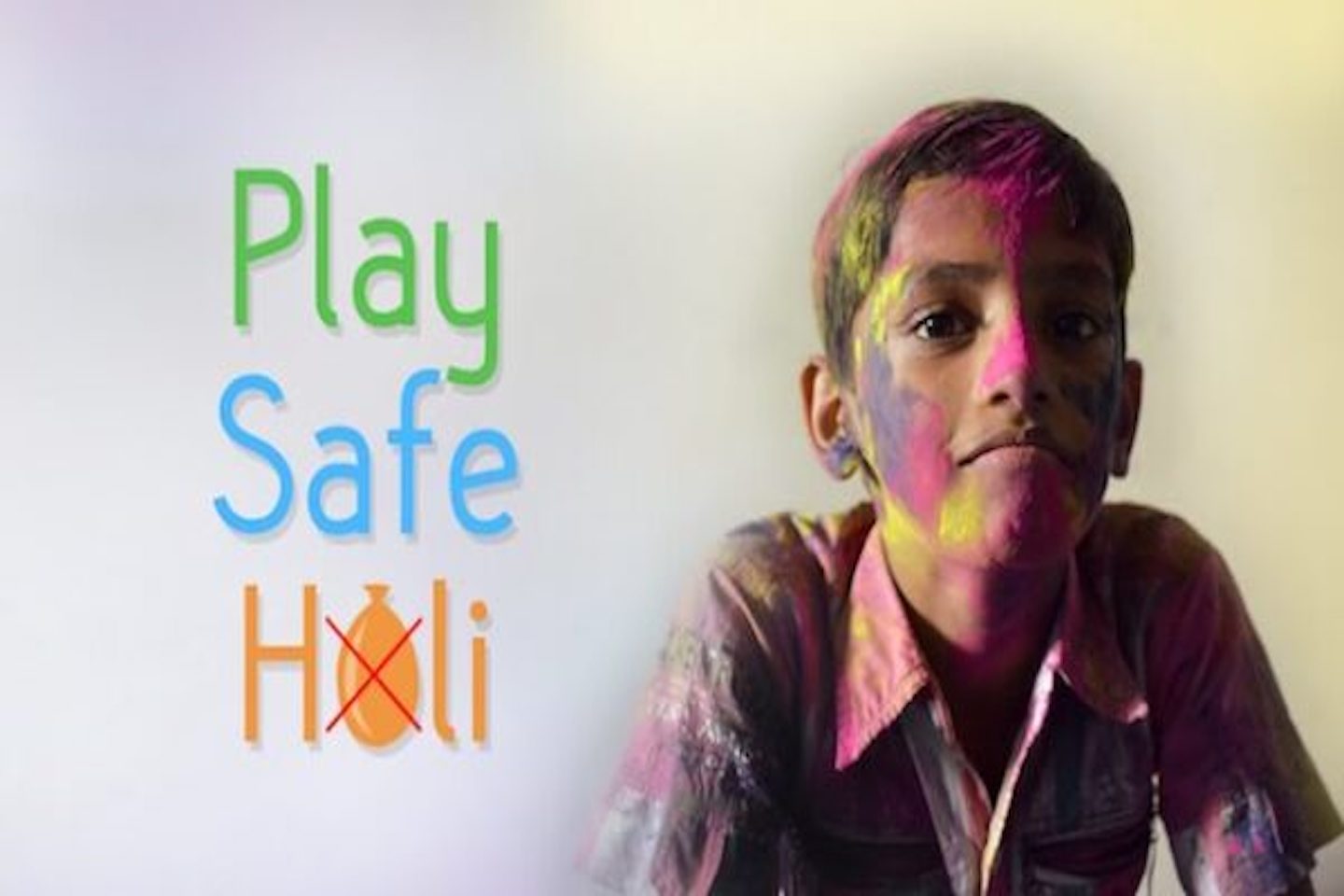India
healthysoch
New Delhi, March 23, 2024:
Holi is a vibrant festival of colors which is celebrated with great enthusiasm in India and many countries all over the world. Holi also welcomes spring and brings joy to people of different age groups which results in unity at this time of year. But the harmful effects of colours should not be overlooked. Amidst the fun and frolic, it is important to keep children’s respiratory health in mind.
The use of chemical laden Holi colors can have harmful effects on health, leading to various issues such as skin irritation, allergies, eye problems, and respiratory complications especially for kids. These colors often contain hazardous chemicals like lead, mercury, chromium, cadmium, and asbestos that worsen conditions like asthma, bronchitis and COPD. Inhaling them causes bronchitis and asthma for chromium that is common in Holi colors while mercury affects both respiratory systems and internal organs posing risks to kidneys, liver and even unborn babies during pregnancy. Pregnant women are particularly vulnerable to the toxic effects of these colors, which can lead to respiratory problems and pose serious health risks to both the mother and the developing fetus” says Dr. Ramesh B R, Senior Consultant Pulmonologist, SPARSH Hospital Bangalore.
Here are the 5 tips for precautions that must be followed for the safety of your children:
- Opt for Natural and Organic Colors:It is important topromote the use of natural and organic colors like Turmeric, Beetroot, and flower extracts while discouraging synthetic or chemical-based colors. These natural options are free from harmful chemicals, ensuring minimal respiratory impact, unlike their synthetic counterparts, which may contain toxic substances like Chromium and Mercury. Raise awareness about the health hazards of synthetic colors, advocating for safer alternatives.
- Protective Gear:Give priority to the use of protective gear such as masks or scarfs to cover the nose and mouth especially for those children who have respiratory conditions. Such a move will reduce exposure to particles suspended in air as well as minimize risk of irritation on respiratory system.
- Limited Exposure and Maintaining Hygiene:Parents should allow short-duration outdoor activities during Holi, particularly for children with respiratory conditions, to minimize color exposure. Ensure adequate ventilation in enclosed spaces where color play occurs. Additionally, emphasize good hygiene practices like frequent handwashing with mild soap and water to remove colors and prevent accidental ingestion. Encourage children to avoid touching their faces, especially around the eyes and mouth, while playing with colors.
- Stay Hydrated:Water is essential for keeping children hydrated during the festivities. It enables the body to get rid of toxins and relieve any respiratory troubles that might arise as a result of inhaling-colored powders.
- Seek Medical Attention:In case your child has difficulty breathing, wheezes or coughs, seek immediate medical attention for him/her. Early intervention prevents worsening of respiratory problems and ensures proper treatment.
Holi is about happiness and children loves to enjoy such festivities but it is important to keep the children’s well-being in mind especially in relation to their respiratory health. Proper awareness should be spread in regards to any dangers that may come through using Holi colors and follow some preventive measures before acting. Let us enjoy responsibly while ensuring our children’s good health during the festival of Holi!
healthysoch







